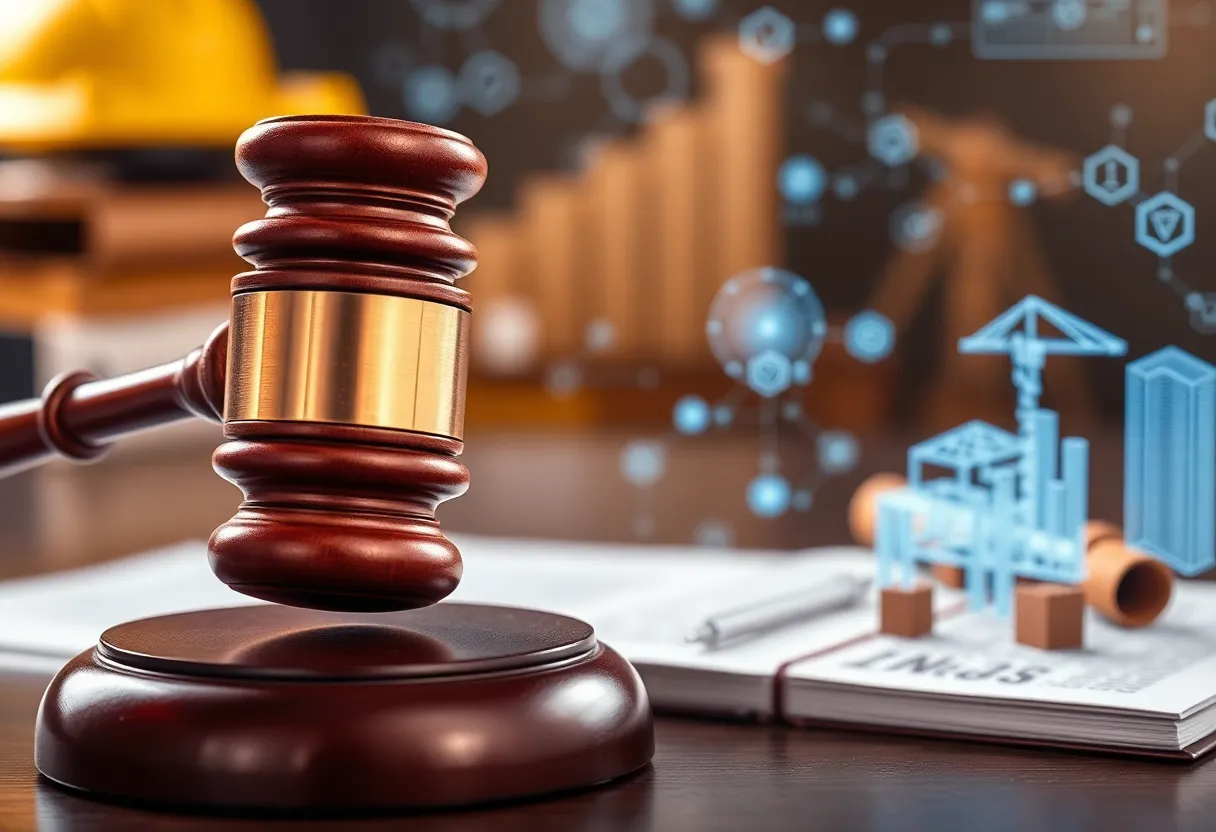News Summary
The use of artificial intelligence (AI) in arbitration processes within the construction industry is on the rise, yet it faces several ethical and practical challenges. While AI tools are currently limited to enhancing remote hearings and database navigation, experts caution against over-reliance. Past cases reveal potential inaccuracies in AI-generated legal documents, further complicating its application. Confidentiality issues also hinder data availability for AI training. Experts advocate for a careful integration of AI, ensuring that human oversight and ethical standards remain a priority as the construction industry evolves.
Integration of AI in Arbitration: A Cautious Approach
The integration of artificial intelligence (AI) into arbitration processes within the construction industry is evolving, though still in its infancy. Experts note that while AI has potential benefits, significant ethical and practical challenges must be addressed before it can be fully integrated into arbitration cases, particularly in complex construction law disputes.
Current Use of AI Tools in Arbitration
Currently, there is limited usage of AI tools among arbitrators, primarily confined to enhancing remote hearings and aiding in the navigation of extensive databases of legal evidence. The COVID-19 pandemic has catalyzed the adoption of technology in resolving disputes, demonstrating AI’s effectiveness in managing repetitive tasks, handling large volumes of evidence, and providing translations for international projects. Despite these advancements, skepticism persists regarding AI’s capability to draft complex legal submissions, as each case presents unique circumstances that often complicate legal reasoning.
Example of Complex Legal Precedent
For instance, the landmark case of R(Cobalt Data Centre 2 LLP v Revenue and Customs Commissioners in 2024 highlighted the intricacies of construction law, underscoring the importance of tailored legal arguments that AI may struggle to formulate accurately. Past publicized mistakes involving AI-generated submissions, which included inaccuracies or so-called “hallucinations,” further fuel skepticism about the reliability of AI in generating legal documents that meet necessary standards.
Confidentiality Challenges in Data Training
Arbitration often occurs in highly confidential settings, which hampers the availability of data necessary for training AI systems effectively. This lack of accessible data presents a significant barrier to enhancing the accuracy and utility of AI in arbitration contexts. While AI has already seen widespread application in various stages of construction projects—including in tendering, risk management, contract management, planning, and record keeping—the adoption of AI in arbitration remains limited.
Online Dispute Resolution and Legal Mandates
Recent trends show that Online Dispute Resolution (ODR) platforms have not gained traction, particularly in complex and high-stakes arbitration cases. For instance, the European Union has decided to discontinue its ODR platform due to low usage rates. Adding another layer of complexity, different jurisdictions impose laws mandating that arbitrators must be human, as seen in countries like France, the UAE, and Turkey. Although the English Arbitration Act does not explicitly prohibit AI arbitrators, it presents challenges regarding personal authority and ethical duties of arbitrators.
Impact on Trial Lengths and Efficiency
Despite concerns, experts recognize that AI has potential to expedite arbitration processes, particularly during remote hearings. During the pandemic, some arbitration cases reported a reduction in trial lengths from four to six weeks down to a maximum of two weeks, showcasing a notable improvement in efficiency. A survey indicates that over 51% of respondents view AI errors and bias as the primary obstacle hindering its use in arbitration. Yet, there is a growing expectation among arbitration users suggesting that AI will become increasingly prevalent over the next five years, primarily for administrative efficiencies.
Challenges Associated with AI in Arbitration
While the use of AI for simple administrative tasks garners general acceptance, reliance on AI for critical decision-making and legal reasoning remains contentious. Concerns persist regarding the ethical implications, accuracy, and the necessity for human oversight in arbitration. Experts advocate for a cautious and measured approach to incorporating AI into arbitration practices, recognizing the complexities involved in construction law and the potential impact of miscalculations.
Conclusion
As the construction industry continues to navigate the implications of AI in arbitration, the focus remains on ensuring that ethical standards are met and that human oversight is preserved. The evolution of technology in this field will require ongoing assessment and adjustment as professionals aim to balance efficiency with the complexities intrinsic to legal proceedings.
Deeper Dive: News & Info About This Topic
Additional Resources
- Artificial Lawyer: How is AI Changing the World of Arbitration
- White & Case: 2025 International Arbitration Survey – Arbitration and AI
- Norton Rose Fulbright: New Frontiers – Regulating Artificial Intelligence in International Arbitration
- Global Arbitration Review: CIArb Issues Guidelines on AI
- Aceris Law: When Arbitrators Use AI – LaPaglia v. Valve
- Wikipedia: Arbitration
- Encyclopedia Britannica: Arbitration
- Google Search: AI in Arbitration
- Google Scholar: AI in Arbitration
- Google News: AI Arbitration
Author: Construction FL News
The FLORIDA STAFF WRITER represents the experienced team at constructionflnews.com, your go-to source for actionable local news and information in Florida and beyond. Specializing in "news you can use," we cover essential topics like product reviews for personal and business needs, local business directories, politics, real estate trends, neighborhood insights, and state news affecting the area—with deep expertise drawn from years of dedicated reporting and strong community input, including local press releases and business updates. We deliver top reporting on high-value events such as the Florida Build Expo, major infrastructure projects, and advancements in construction technology showcases. Our coverage extends to key organizations like the Associated Builders and Contractors of Florida and the Florida Home Builders Association, plus leading businesses in construction and legal services that power the local economy such as CMiC Global and Shutts & Bowen LLP. As part of the broader network, including constructioncanews.com, constructionnynews.com, and constructiontxnews.com, we provide comprehensive, credible insights into the dynamic construction landscape across multiple states.





